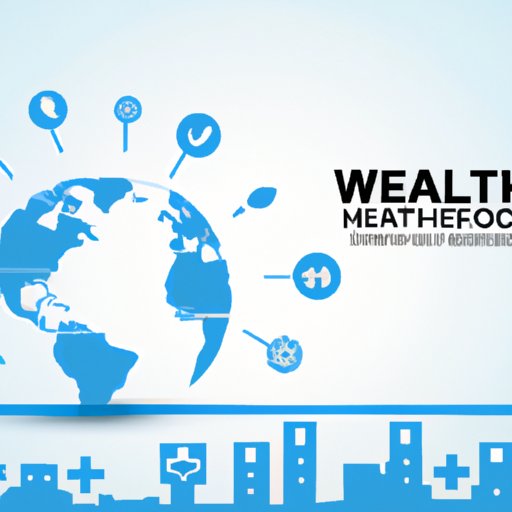Introduction
The World Health Organization (WHO) is a specialized agency of the United Nations that is responsible for leading global efforts to improve health and reduce the burden of disease. The WHO’s mission is to promote health, keep the world safe, and serve the vulnerable by providing leadership on global health issues, shaping the health research agenda, setting norms and standards, articulating evidence-based policy options, providing technical support to countries, and monitoring and assessing health trends.
Examining the WHO’s Goals and Objectives
The WHO has a number of goals and objectives that it aims to achieve in order to improve global health. Its vision is to “ensure that all people have access to the highest attainable level of health, through the attainment of universal health coverage and the reduction of health inequities.” To achieve this vision, the WHO focuses on three core strategies: strengthening governance and accountability; promoting innovation and experimentation; and building partnerships with governments, civil society, and the private sector.
Investigating the WHO’s Contributions to Global Health
The WHO has made significant contributions to global health over the years. Through its efforts, the organization has been able to reduce mortality rates, improve access to healthcare services, and provide technical assistance to countries in need.
The WHO has worked to reduce mortality rates by developing and implementing effective strategies to prevent and control infectious diseases. It has also worked to improve access to healthcare services by advocating for equitable access to healthcare, promoting public health initiatives, and providing technical assistance to countries in need. In addition, the WHO has promoted public health initiatives such as immunization campaigns and disease surveillance systems.
Comparing the WHO to Other International Health Organizations
The WHO is one of several international health organizations that are dedicated to improving global health. Other organizations include the World Bank, the Global Fund, and the GAVI Alliance. While these organizations all work towards similar goals, they differ in terms of their approach and scope. For example, while the WHO focuses primarily on health promotion, the World Bank works to reduce poverty and promote economic development, and the Global Fund focuses on fighting HIV/AIDS, tuberculosis, and malaria. The GAVI Alliance, meanwhile, works to increase access to vaccines in developing countries.
Despite their differences, these organizations often work together to achieve their shared goals. For example, the WHO and the World Bank collaborate to develop policies and programs to improve healthcare access in low-income countries, and the WHO and the GAVI Alliance work together to promote immunization and strengthen vaccine delivery systems in developing countries.
Analyzing the WHO’s Impact on Healthcare Delivery Around the World
The WHO has had a significant impact on healthcare delivery around the world. Its efforts have helped to improve access to healthcare services, reduce mortality rates, and promote public health initiatives. In addition, the WHO has worked to ensure that healthcare systems are equitable and accessible to all, regardless of income or social status.
The WHO has also played an important role in increasing access to essential medicines and technologies. The organization works to ensure that medicines and technologies are available and affordable, and it promotes the use of innovative approaches to health service delivery, such as telemedicine and mobile health technologies.
Understanding the WHO’s Role in Disease Prevention and Control
The WHO plays an important role in preventing and controlling infectious diseases. The organization develops guidelines and standards for disease prevention and control, and it monitors the spread of infectious diseases and assesses the effectiveness of interventions. The WHO also works to improve access to vaccines, supports vaccination campaigns, and provides technical assistance to countries in need.
Investigating the WHO’s Role in Developing Countries
The WHO plays an important role in promoting health equity in developing countries. The organization provides technical assistance to countries in need, and it works to improve access to healthcare services, reduce mortality rates, and promote public health initiatives. In addition, the WHO works to ensure that healthcare systems are equitable and accessible to all, regardless of income or social status.
Conclusion
The World Health Organization is a leading global health organization that works to improve global health and reduce the burden of disease. The organization has achieved a number of successes, including reducing mortality rates, improving access to healthcare services, and promoting public health initiatives. It has also played an important role in promoting health equity in developing countries and ensuring that healthcare systems are equitable and accessible to all. Overall, the WHO has made significant contributions to global health and will continue to do so in the future.
(Note: Is this article not meeting your expectations? Do you have knowledge or insights to share? Unlock new opportunities and expand your reach by joining our authors team. Click Registration to join us and share your expertise with our readers.)
